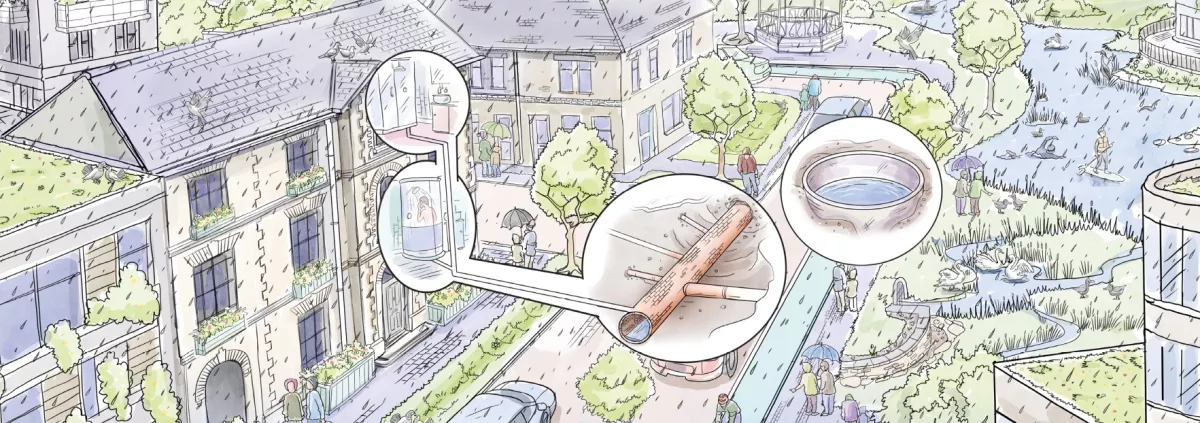Storm overflows from combined sewers and wastewater treatment works are currently discharging in thousands of locations and for millions of hours each year. Impacts on amenity and nature are unacceptable and solutions are needed.
The reasons for this situation are varied, including historic malpractice by water companies, inadequate monitoring and enforcement by regulators, insufficient management of development and highways infrastructure in towns and cities and the disposal of inappropriate products down toilets and drains. These factors and more have led to the progressive worsening of water management, and river and coastal water health over recent decades.
This multi-dimensional problem – which has links with wider issues including flood risk management, wider climate resilience and nature recovery, as well as place-making and social health and wellbeing – needs a multi-dimensional solution. Whilst water companies are at the centre of the issue and solutions delivery, action is needed more widely to deliver lasting improvement.
Systems-thinking helps to identify the range of influences on a given problem and to set out where interventions can be made within the wider system of influences, to achieve beneficial change to the way we do things.
This project engaged systems-thinking specialists and stakeholders across the water sector and beyond to understand the detail of this system, and to make recommendations for improvement.
